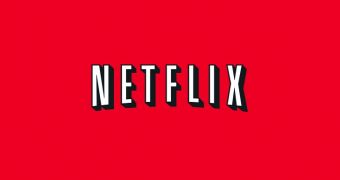As Netflix slams US major Internet Service Providers for not respecting basic net neutrality rules, the AT&T whips out its claws and fires back in a rather public manner.
“I saw Reed Hasting’s blog yesterday from Netflix asserting in rather dramatic fashion (with diagrams) that ISPs should build facilities (he said provide, but those facilities have to be built) to accept all of Netflix’s content – indeed all of the content on the Internet – without charge,” said Jim Cicconi, AT&T’s public policy chief.
Cicconi goes on to mock how Hastings considers this to be a violation of strong net neutrality rules and an overall bad public policy.
He further argues that the increasing amounts of bandwidth required by Netflix means networks need to be upgraded to handle it, and therefore additional costs for the ISPs.
“As we all know, there is no free lunch, and there’s also no cost-free delivery of streaming movies. Someone has to pay that cost. Mr Hastings’ arrogant proposition is that everyone else should pay but Netflix. That may be a nice deal if he can get it. But it’s not how the Internet, or telecommunication for that matter, has ever worked,” Cicconi said.
He also compares Netflix’s DVD delivery system, where the company pays for transport, to the way the Internet works, claiming there’s no difference in how the two work.
“If there’s a cost of delivering Mr. Hastings’s movies at the quality level he desires – and there is – then it should be borne by Netflix and recovered in the price of its service. That’s how every other form of commerce works in our country,” Cicconi says, adding that it’s not fair for Hastings to demand zero delivery costs for free.
Hastings posted a blog post on Thursday, slamming bit ISPs that do not practice net neutrality rules and that extort the company into paying additional taxes in order for its customers to receive suitable quality content.
In fact, Netflix agreed to do such a thing just a few weeks ago, when it signed a deal with Comcast, one of the largest ISPs in America.
“The essence of net neutrality is that ISPs such as AT&T and Comcast don’t restrict, influence or otherwise meddle with the choices consumers make. The traditional form of net neutrality which was recently overturned by a Verizon lawsuit is important, but insufficient,” Hastings wrote, urging legislators for a stronger form of Internet neutrality.

 14 DAY TRIAL //
14 DAY TRIAL //